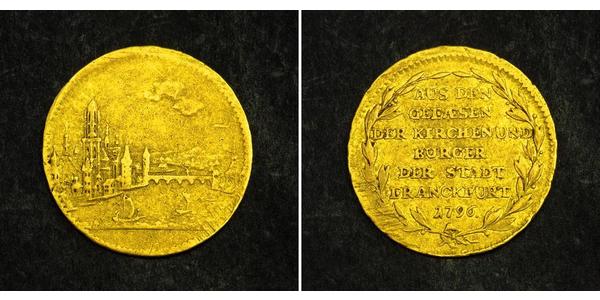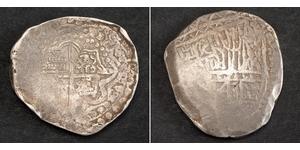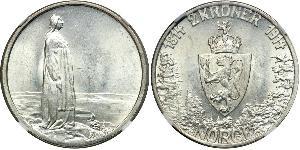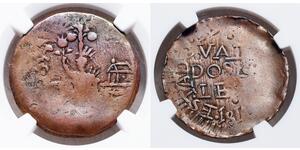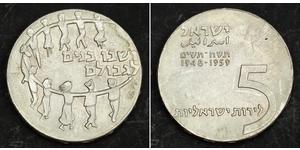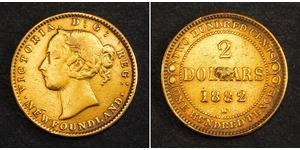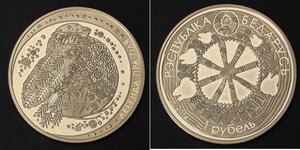(Vendue pour $551.0)
1796, Frankfurt (Free City). Scarce "Contribution" Gold Ducat Coin. 3.46gm!
Used as a levy paid to the French General Kleber. Rare!
Mint year: 1796
Mint Place: Frankfurt (Free City)
Reference: Friedberg 1025, KM-189. RR!
Mint Master: Georg Hille & Johann Georg Bunsen (H.G - B.H.)
Condition: Marginal weight-adjusting marks, numerous contact marks in fields, otherwise an average VF/VF+
Denomination: Contribution Ducat - Struck to be used as a levy to General Kleber from gold donated by the churches and citizens of Frankfurt!
Material: Pure Gold (.986)
Diameter: 20mm
Weight: 3.46gm
Obverse: Western city view of Frankfurt with three boats floating on the Main River. Cloud above.
Reverse: Legend "(struck) from (gold) vessels of the Church and People of Frankfurt" in six lines above date (1796). All within wreath.
Legend: AUS DEN GEFAESEN DER KIRCHEN UND BURGER DER STADT FRANKFURT ("(struck from) the receptacles of churches and citizens") 1796.
For your consideration a very rare gold ducat coin, struck from gold liturgical vessels of the churches of Frankfurt and other gold objects contributed by the people, to be used as a levy paid to the French General Kleber to ensure the safety of the city. The reverse legend explains that the silver came from "(struck from) the receptacles of churches and citizens." A rare and important gold coin and a beautiful addition!
Jean Baptiste Kléber (9 March 1753 – 14 June 1800) was a French general during the French Revolutionary Wars. His military career started in Habsburg service, but his plebeian ancestry hindered his opportunities. Eventually, he volunteered for the French Army in 1791, and rose through the ranks.
Kléber served in the Rhineland during the War of the First Coalition, and also suppressed the Vendee Revolt. He retired to private life in the peaceful interim after the Treaty of Campo Formio, but returned to military service to accompany Napoleon in the Egyptian Campaign in 1798-99. When Napoleon left Egypt to return to Paris, he appointed Kléber as commander of the French forces. He was assassinated by a student in Cairo in 1800.
Frankfurt was one of the most important cities in the Holy Roman Empire. From 855 the German kings and emperors were elected in Frankfurt and crowned in Aachen. From 1562 the kings/emperors were also crowned in Frankfurt, Maximilian II being the first. This tradition ended in 1792, when Franz II was elected. His coronation was deliberately held on Bastille Day, 14 July, the anniversary of the storming of the Bastille. The elections and coronations took place in St. Bartholomäus cathedral, known as the Kaiserdom (en: Emperor's Cathedral), or in its predecessors.
The Frankfurter Messe (Frankfurt Trade Fair) was first mentioned in 1150. In 1240, Emperor Friedrich II granted an Imperial privilege to its visitors, meaning they would be protected by the Empire. Book trade fairs have been held in Frankfurt since 1478.
In 1372 Frankfurt became a Reichsstadt (en:Imperial city), i.e. directly subordinate to the Holy Roman Emperor and not to a regional ruler or a local nobleman.
2 Dollar Canada Or Victoria (1819 - 1901)
Le groupe a 39 pièces / 38 prix
⇑
Une d'entre elle est

